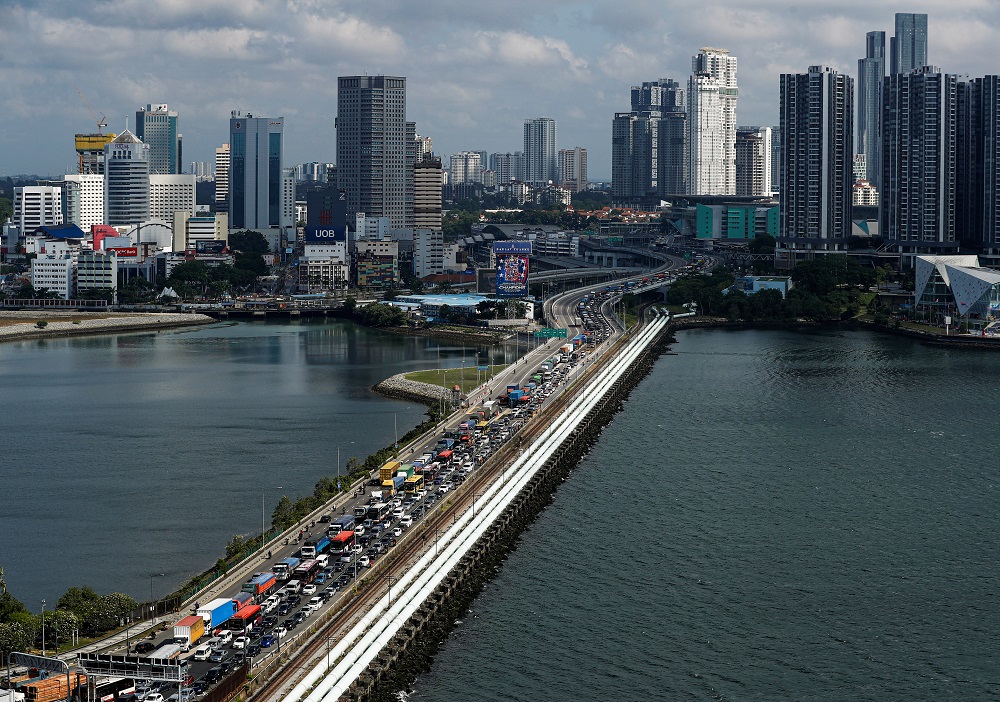KUALA LUMPUR, June 24 ― Singapore is likely to take a “step by step approach” on reopening its border with Malaysia, with public health being a key consideration on the decision, according to the republic’s foreign affairs minister.
Speaking to Channel News Asia (CNA), Vivian Balakrishnan said the border could be opened up gradually but with continued preventive measures such as Covid-19 tests and contact tracing.
“I do not see it possible to have a big bang complete, no holds barred, no restrictions, no tests (approach) ― I think that would be unwise.
“But we can open up in steps, have the appropriate measures to test people, contact trace people because when you open up, your risk (of infection) will inevitably increase,” the Singaporean official was quoted saying to CNA’s In Conversation host Diana Ser.
On June 19, the Malaysian government had agreed in principle to let Singaporeans and Bruneians enter the country borders without having to apply for approval from the Malaysian Immigration Department or to undergo Covid-19 screening and home quarantine.
Senior Minister (Security Cluster) Datuk Seri Ismail Sabri Yaakob said, however, this was on condition that Malaysians would also be afforded the same privileges by the Singapore and Brunei governments.
In response, Singapore said it was prepared to work with Malaysia in addressing the needs of cross-border travellers, amid the Covid-19 situation.
Asked about when travel between Singapore and Malaysia can resume, Balakrishnan said he would “hesitate to put a timeline”, adding that authorities on both sides of the Causeway have to work out many details.
“We have to work out those protocols and to make sure those protocols are effective on both sides of the Causeway. So just give us a few, I would say, days to weeks.
“And I have to tell you that we have to be very, very careful that as we open, we don’t reopen Pandora’s box and the virus gets out on a rampage again. It’s a very delicate operation,” he said, pointing that one of the world's busiest land crossings was between Johor and Singapore.
He also acknowledged that both Singapore and Malaysia cooperated “very effectively” throughout the Covid-19 pandemic.
One such example was how health authorities on both sides were also in close consultation.
“There has been a lot of interaction, phone calls, video conferences at all times of the day and night, at all levels of leadership.
“And that communication has been very useful and has helped to build trust.
“There were Singaporeans on Malaysian flights from other parts of the world returning and when we had space, we also provided seats to Malaysians who were also trying to return. In other words, not only were we mutually providing consular services to our citizens, we were also acting as a transit centre for our citizens desperately trying to go home,” he said.
Despite confusion in the early days of Malaysia's movement control order, Balakrishnan also said both sides managed to keep the flow of goods moving.
“Fortunately, because we were in touch, and we were, on our side, able to respond quickly. If you actually think about the outcomes, it’s actually a pretty good record.
“Throughout this movement control order or our own circuit breaker, the supply chains between Malaysia and Singapore continued to flow.
“Communications continued, supplies continued, essential medical supplies continued. People flow, repatriation, consular services continued and we cooperated very effectively,” he added.
On how Singapore decides which country to establish these arrangements with, Balakrishnan said countries that have strong diplomatic ties; business and economic interests in; and familiar public health systems would fit the criteria.
“We understand their tests, they understand our test. We have a mutual appreciation of each other’s concerns. And we’re able to synchronise our – for instance, our testing regimes. So that’s the way it proceeds.
“There will be ups and downs, not only in Singapore, but in other countries as well. So these arrangements have to be flexible enough to deal with changing circumstances. But the key thing is communication, is trust, is openness, is reliability,” he said, adding that these arrangements will have to withstand the test of time as they have to be in place in the next 12 to 18 months.



















